
Former Senator Phil Gramm Explodes the Myth of American Inequality in an Eye-Opening Conversation
According to former Senator Phil Gramm, inequality in the U.S. is grossly overstated largely because it fails to take into account massive government aid to low income earners. The implications of this are huge, especially given the current debate about remaking capitalism. Don’t miss this important conversation.

The U.S. and the Holocaust: What did America Know and Do During the Greatest Atrocity of Our Time with Ken Burns' Co-Directors
What was America’s response to the Holocaust? What did we know and not know, do and not do, as the catastrophe unfolded? These questions resonate today, when the refugee crisis, immigration and antisemitism are making headlines. Don’t miss this powerful conversation with the co-directors of the new Ken Burns documentary film The U.S. and the Holocaust, Lynn Novick and Sarah Botstein.

Chip War: the Fight for the World's Most Vital Technology and the Staggering Vulnerability of the U.S.
The world as we know it relies on computer chips, and the most important ones are made largely in Taiwan. This renders the U.S. shockingly vulnerable as China continues saber rattling in the region. Don’t miss this enlightening talk with economic historian and author Chris Miller.

How Worried Should We Be About Dysfunctional Government? A Gifted Constitutional Expert Weighs In
Congressional gridlock has created a vacuum that undermines key principles of the Constitution, raising concerns about the country’s future. Yet constitutional expert extraordinaire Kannon Shanmugam believes our future is bright. Learn why.

Why the Lies We Tell in Public Are So Destructive with Duke's Timur Kuran
Hiding what we really think can have devastating social consequences, and helps explain the rise of Donald Trump, why Harvey Weinstein got away with it for so long, the unreliability of election polls, and much more. Don’t miss this eye-opening conversation with Duke’s Timur Kuran.

Former FCC Chair Tom Wheeler: Our Loss of Privacy Is Worse Than You Think, No Matter What You Think
Your entire life is an open book of information collected by tech companies. According to Tom Wheeler, former head of the Federal Communications Commission, the privacy problem is shockingly large, getting bigger, and has frightening consequences. What, if anything, can be done? Listen and find out.

Presidential Advisor David Gergen: Democracy in Peril and New Leadership
David Gergen, White House Advisor to four presidents, warns us about our failing democracy. He shares how our current government has moved from being able to work across the aisle to create win-win outcomes to creating a win-lose environment stoked by an environment of anger. He reminds us that Millennials and Gen Z are capable and available to step up to the plate if we would just let them, and gives us insights into what makes great leaders.
David Gergen has advised both Republican and Democratic presidents including Richard Nixon, Gerald Ford, Ronald Reagan and Bill Clinton. He is currently a senior political analyst at CNN and professor at Harvard. His newest book is Hearts Touched with Fire: How Great Leaders are Made.
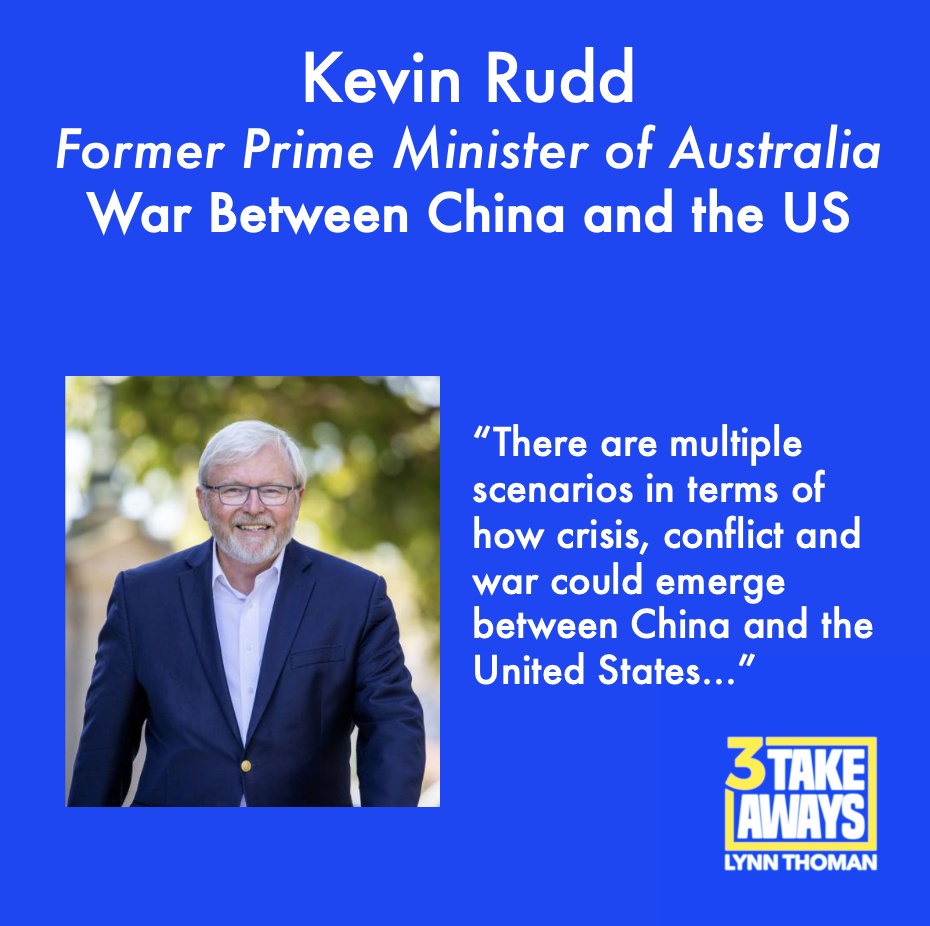
Former Australian Prime Minister and China Scholar Kevin Rudd: War Between the US and China
Just as there was nothing inevitable about WW1 which came about because of flawed decisions by political and military leaders, former Australian Prime Minister Kevin Rudd worries that mutual non-comprehension and deep suspicion may lead the US and China into war. He believes that an armed conflict between China and the US is a real possibility. The Chinese Communist Party would see itself as fighting for its very survival in a war and a conventional war could easily escalate into one involving weapons of mass destruction, if Chinese forces begin to lose.
Former Australian Prime Minister Kevin Rudd has studied and lived in China and has worked with China’s leaders, including Xi Jinping, for decades. His new book is The Avoidable War: The Dangers of a Catastrophic Conflict Between the US and Xi Jinping’s China.
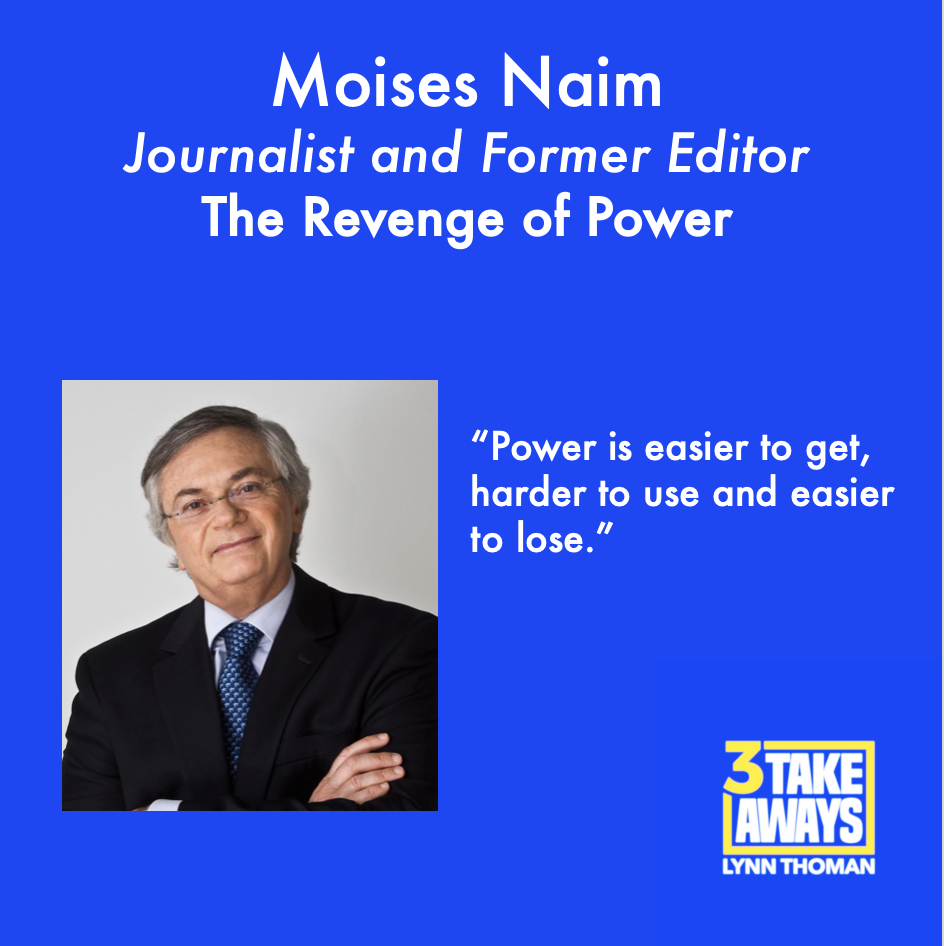
The Revenge of Power: How Power is Shifting in the 21st Century with Moises Naim
Power is easier to get, harder to use and easier to lose. Moises Naim explores how power is changing across all sectors of society. Power has shifted from country leaders to public squares, large companies to start-ups, and large armies to insurgents. Being in charge isn’t what it used to be! But at the same time, power is also concentrating in some sectors. Autocrats are reinventing politics and gaining power using 21st century tools - populism, polarization and post-truths - and undermining democracies around the world.
Moises Naim is a Venezuelan journalist and former editor-in-chief of Foreign Policy magazine. He was Minister of Trade and Industry for Venezuela, director of Venezuela’s Central Bank, and executive director of the World Bank. He is the author of The End of Power and The Revenge of Power.

From Hawk to Dove, Negotiating Peace after War: Former Colombia President Juan Manuel Santos
President Santos received the Nobel Peace Prize for bringing Colombia's more than 50 year civil war to an end. His unique and humble leadership style allowed him to pivot from being a hawk to a dove on war, and this change is mirrored in his transition from climate change denier to climate change fighter. These 180 degree pivots are unprecedented for a world leader.
He describes the almost impossible challenges he faced ending a civil war with millions of victims, and delves into how he was ultimately able to broker peace. He led the war as a war hero and negotiated peace as president. His monumental accomplishments are inspired by the heartbreaking stories of victims.
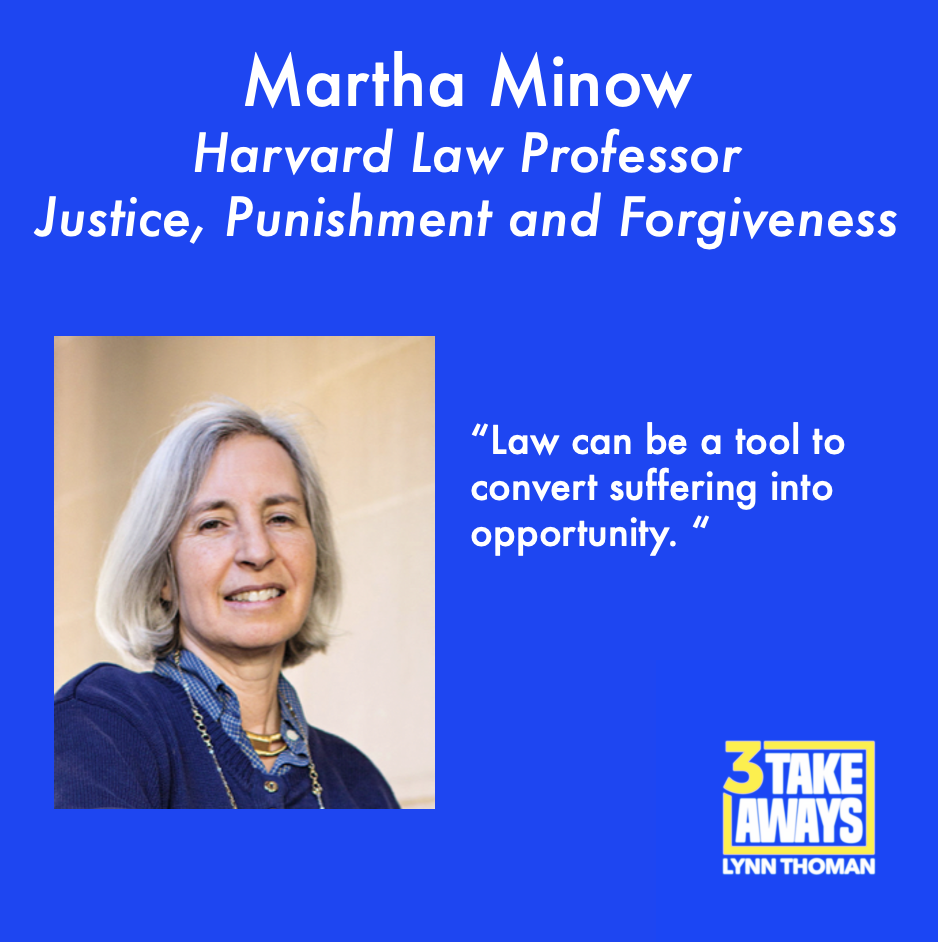
Justice, Punishment and Forgiveness: When Should Law Forgive?
Former Harvard Law School Dean Martha Minow argues for greater forgiveness by the law and the justice system. Using examples from around the world, she shares how forgiveness can lower crime and reduce incarceration.
She warns about the highly punitive American justice system which forgives bankruptcy but not misdemeanors.
The very same kind of crime in the United States and in Sweden or in Finland, will produce in the United States perhaps a 20 years' sentence, and in one of those Scandinavian countries, maybe 5 to 10 years. The US is far more punitive, and Martha argues there is no evidence that that produces lower rates of crime. In fact, the US has higher rates of crime.
What‘s the right balance between forgiveness and punishment? It's not an easy question. A justice system needs to hold people accountable for their crimes and be fair, treating people the same, but when should the law forgive and allow for fresh beginnings? Martha Minow is the perfect person to ask. She’s written a book titled When Should Law Forgive?
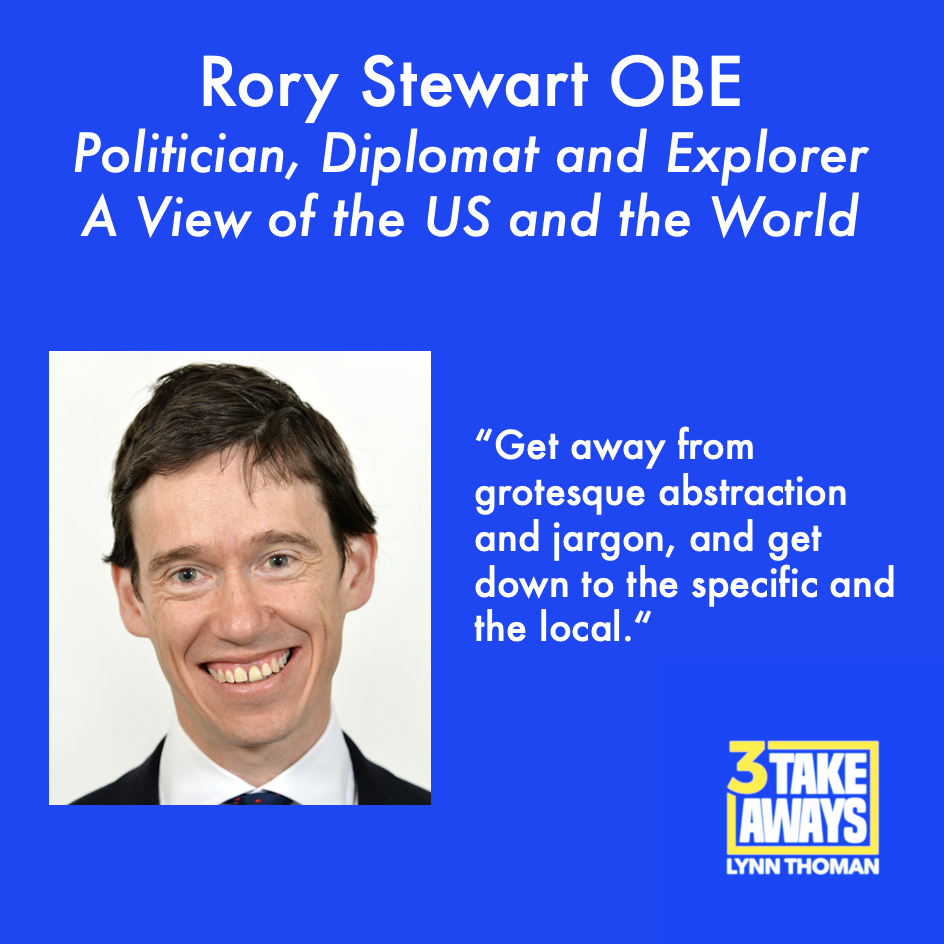
A British Minister on Why Being a Politician Is the Worst Job Imaginable, Brexit and a View of the US and the World: Rory Stewart
Rory Stewart provides an unconventional perspective on the US and the world, including the mistake of our all-in and all-out mentality, politics without detail and how politicians live in a perpetually paranoid universe and don’t accomplish much in their lives.
It doesn't matter whether you're talking about Afghanistan, climate change or populism in the US and Europe, Rory believes the fundamental problem is a problem of jargon and abstraction. Let's take Afghanistan. President Biden left Afghanistan, because instead of focusing on the fact that the US actually only had 2,500 soldiers on the ground, was doing very little fighting and had had no casualties for 18 months, he labeled it a "forever war". And by doing so, he convinced himself and 70% of the American people that we were still back in 2012 in this huge military operation which no longer existed. And the same basic problem underlies all our politics, which is that we are now in a world of politics without detail.
Rory also shares an ally’s perspective on the US, what Europeans see as a joke, and the 50% likelihood that China will make an aggressive move to reincorporate Taiwan.
Rory Stewart is a British diplomat, politician, author and explorer who has walked solo across Afghanistan. He has served across the UK government as Secretary of State for International Development, Minister of the Environment, Minister of State for Justice, and as Chair of the House Commons Defense Select Committee.

Political Commentator George Will: Insights on American Government Today, and Where the Democratic and Republican Parties Have Both Gone Wrong
We sit down with George Will and discuss what conservatism means today and where the Republican and Democratic Parties have both gone wrong - the Republican Party with Donald Trump and the Democratic Party by being “dominated by a tail that wags the bigger dog.” Progressives, he says, are at most a third of the Democratic Party, but they are 90% of Joe Biden's agenda now and they are “in the saddle riding poor Joe Biden.”
He shares how Joe Biden squandered one of the great opportunities of modern politics and how the Democratic Party is disobeying Thomas Jefferson's admonition to not undertake large departures on slender majorities. As for the Republican Party, he talks about Donald Trump’s effect on the Party, how the Party has strayed from its roots and what it means to be a Republican today.
He also worries that from Elizabeth Warren on the left to Ted Cruz on the right, the political class is united by a constant powerful imperative for deficit spending.
George Will is a political commentator, columnist and author of 16 books. He has won a Pulitzer Prize and is a regular contributor to the Washington Post.

Reporting from War Zones with CNN Chief International Correspondent Clarissa Ward: How What's Reported Differs From the Situation On the Ground
This week we talk with Clarissa Ward, CNN’s Chief International Correspondent, who has been reporting from Ukraine, and who has covered hot zones and wars in Lebanon, Iraq, Egypt, Syria and Afghanistan and been based in Baghdad, Beirut, Beijing and Moscow. She shares the remaking of the world from the front lines and how the situation on the ground differs from what’s reported.
She provides a deeply personal and inside scoop on the news. Find out why TV doesn’t provide a full picture of reality and what she’s learned from her extensive time covering conflicts and wars.
She also talks about a reporter’s responsibility in being a vessel, the mental health toll of reporting from war zones and the surprising advantages to being a woman reporting from the Middle East.
Clarissa is known for her courage, compassion and riveting reporting. She speaks seven languages and has received multiple awards, including Peabody, Murrow and nine Emmy awards.

Former MI6 Chief Sir Alex Younger: Putin's Miscalculations Invading Ukraine, Why Putin May Become More Desperate and Dangerous, Realities of a Spy and the Importance of Trust and Alliances
Former MI6 Chief Sir Alex Younger – with his years of experience as a spy - shares how Putin miscalculated with his invasion of Ukraine, why he can’t back down and what the long term impact of the Russian invasion of Ukraine and the US exit from Afghanistan may be on Xi Jinping’s plans for Taiwan. He also provides insights on threats in our globalized world and reveals what it takes to be a successful spy, how to out-think the opposition and how spies, while professionally cynical, are romantics at heart.
“My career has showed me what well-motivated individuals, brave individuals can do, and that's been an enormous privilege.”
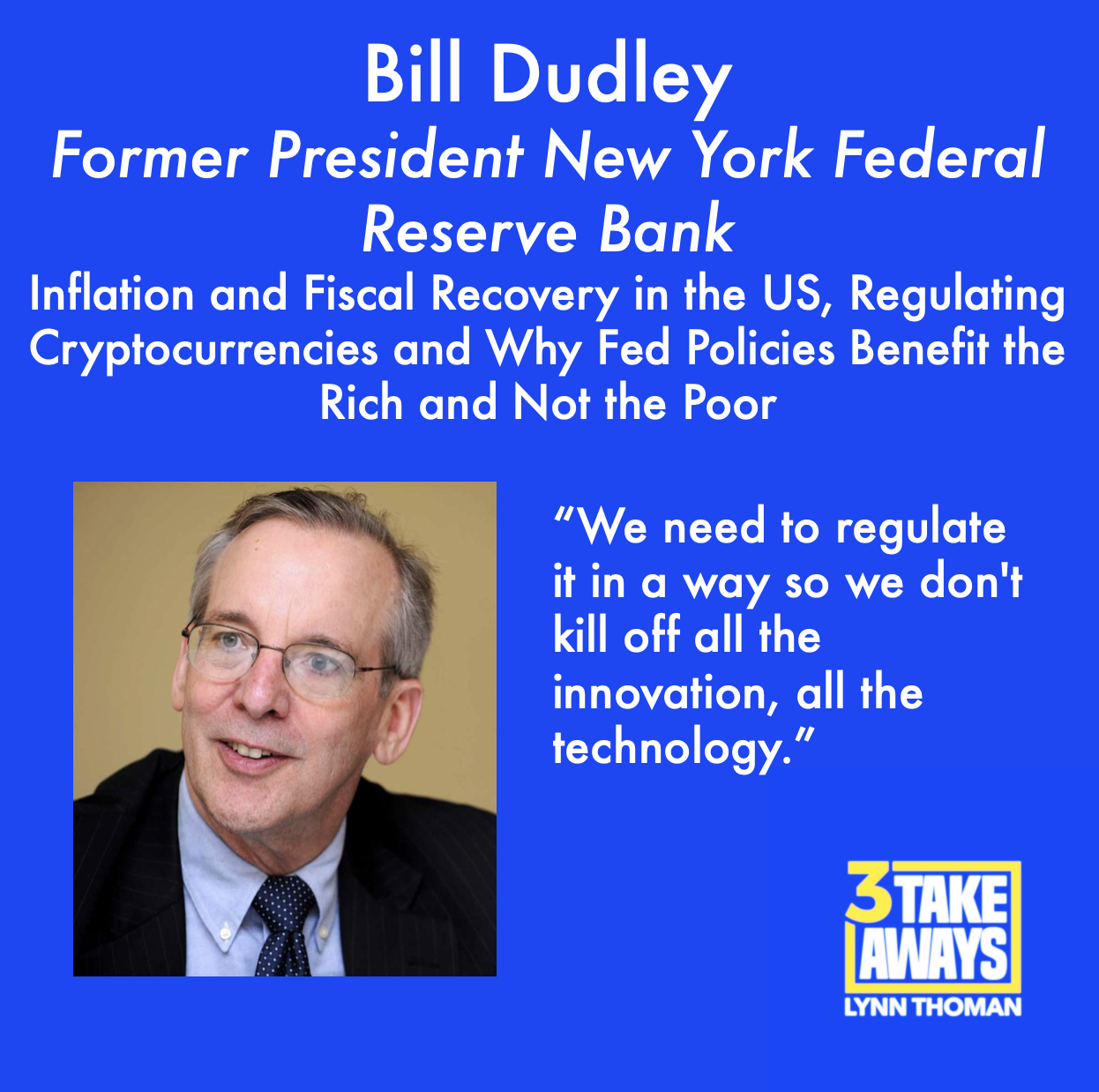
Former CEO of New York Federal Reserve Bank Bill Dudley on Inflation and Fiscal Recovery in the US, Regulating Cryptocurrencies and Why Current Fed Policies Benefit the Rich and Not the Poor
We talk with Bill Dudley, the former President and CEO of the New York Federal Reserve Bank, about the US economy - where it is headed and what could happen, how the pandemic affected it, why Fed policies benefit the wealthy and what $5 trillion in government spending means for GDP. He also shares his thoughts about cryptocurrencies and how stricter regulation could bring wider adoption. Does he think the Fed is Too Hawkish, too Dovish or in “Alice In Wonderland”?
Bill Dudley is an American economist - who joined the Federal Reserve on the eve of the 2008 financial crisis after a 20 year career at Goldman Sachs.

Is Tribalism Always Bad? How Group Identity or Tribalism Has Taken Over our Political System with Yale Law School Professor Amy Chua
Yale Law School professor Amy Chua shares how group identity has caused bitter partisanship in the U.S. and the failure of U.S. policies in Vietnam and other countries. Learn how children as young as 4 years old identify with groups and consistently display systematic, unconscious bias toward other groups. Amy argues that tribalism has taken over America's political system and that the way forward lies in remembering what makes the country special.
Amy Chua is the author of 5 books and was named one of Time magazine’s 100 Most Influential People.
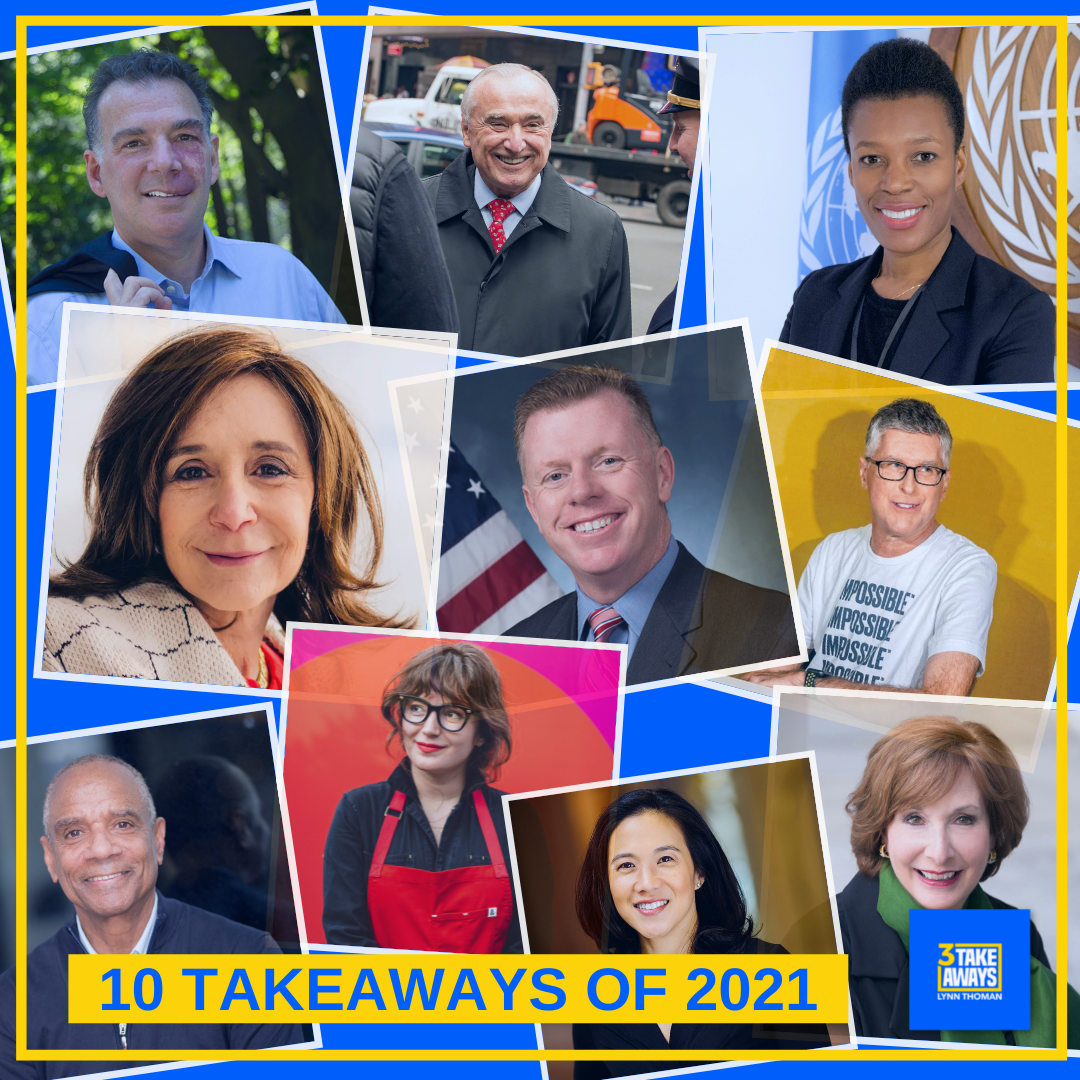
Always Be Learning: The Top 10 Takeaways of 2021 From Our Guests
This week on the podcast we are highlighting the Top 10 Takeaways of 2021. With guests ranging from CEOs and founders, to best-selling authors and even the Director of the U.S. Secret Service. These individuals left us feeling motivated and inspired!

Uncontrolled Spread: Why COVID-19 Crushed Us and How We Can Defeat the Next Pandemic with Former FDA Commissioner Scott Gottlieb
Former FDA Commissioner Dr. Scott Gottlieb gives an inside account of the system wide failure across the U.S. government that left the country blind amidst the global covid pandemic. Throughout the pandemic, he was in regular contact with all the key players in the government and the drug and diagnostic companies. Find out how we can better prepare for the next health crisis – be it a deadlier covid variant, a flu pandemic, or a manmade biological threat.
Scott is the author of Uncontrolled Spread: Why COVID-19 Crushed Us and How We Can Defeat the Next Pandemic.
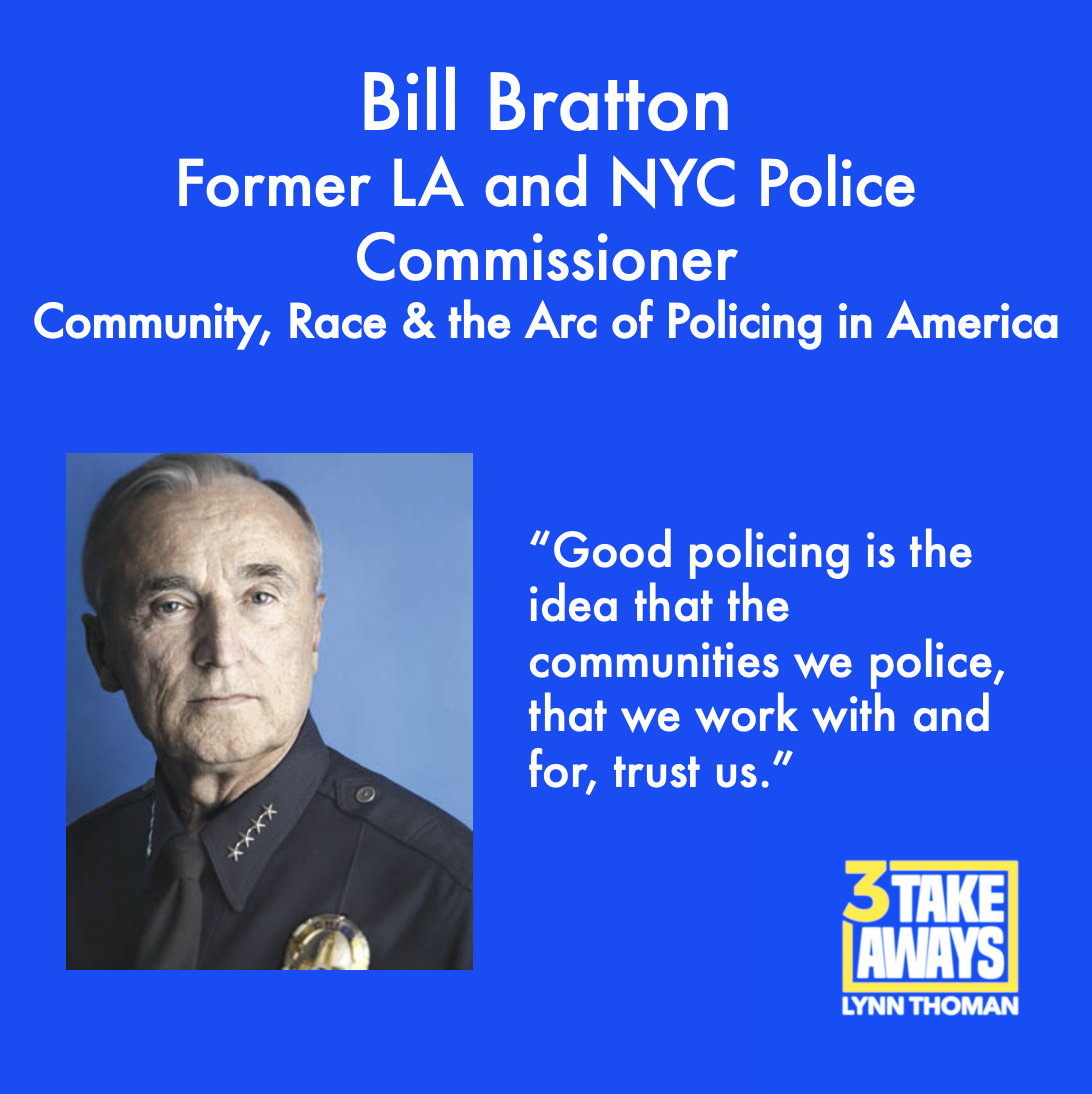
Community, Race, and the Arc of Policing in America: Former NYC and LA Police Commissioner Bill Bratton
Former New York City Police Commissioner Bill Bratton shares what he thinks good policing looks like, reforms needed in the wake of George Floyd’s murder, the arc of policing and the reasons crime is up in many major cities. He talks about different approaches to policing including broken windows, rapid response and community policing as well as the crisis in relations between the Black community and the police. While he and his team slashed crime rates and created the revolutionary data-driven program CompStat, his career has not been without controversy. He is the only person to have led the police departments of the United States' two largest cities – New York and Los Angeles.
Bratton is currently the chairman of the U.S. Homeland Security Advisory Council and author of The Profession.
